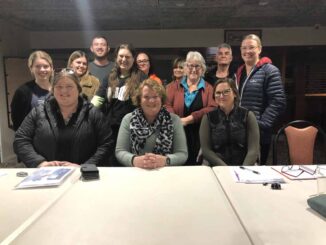Dear editor,
I write because of the poorly spoken words of our town’s highest elected official, Mayor Peter Abbott, at the Anzac Day service.
He chose the service as his opportunity to push controversial political opinions on Covid vaccines and facemasks that should not be associated with Anzac Day.
I am a returned serviceman with over 15 years of service in the Army. I have completed tours of Afghanistan and East Timor.
I have consulted with many of the other local returned servicemen, and I feel that on this topic we are of one mind.
I was disgusted to see the brazen arrogance displayed when the mayor confidently expressed an opinion that veterans would uniformly share his political views.
Each veteran fought for their own reasons and it would be idiotic to suggest that a group drawn from our diverse population would all have the same opinion.
There are literally living veterans with contrary opinions to the mayor.
On Anzac Day, I, like many others within our community, chose to show my respect to the fallen after the march, at Drummond Park.
This is usually a moment the community comes together as one, regardless of differences for a common cause.
It was good to see such an overwhelming show of support from this small community, and it is acutely felt by us veterans.
What was not good, was the inappropriate topic of the mayor’s speech and his speculation of what veterans fought for.
However, for the mayor’s benefit I feel like I should describe what Anzac Day does feel like to us that march and why unity is so important.
When we march on Anzac Day, we are a small number, but I have never felt alone.
I march in the shadow of at least 103,021 known fallen comrades.
To me this is more than a number.
I see faces among these names.
Not because I remember them, but because it is impossible for me to forget them.
To me these people represent a large part of my life, and an indescribable loss.
It is easy to reduce casualties of war to numbers and names, but for those of us that march, it is more.
For me it is the memory of a morning coffee with someone, a joke, an argument and the comfort of seemingly endless routine.
You get to know the people you’re with very well in war, and you feel close to them.
Even more acutely, you feel the action that ends it all.
A single burst of gunfire brought this home to me.
This short burst of hatred has caused this number to be much more real to me, it now represents an indescribable feeling of fear, hatred and guilt.
As we march, I feel an overwhelming sadness for the people that are no longer able to march.
When I see the flag in front of the parade, I am reminded of watching that same flag draped over a coffin that contains a person that I lived with and cared for.
I am reminded of the small details that no one should have to know.
Nothing can describe the empty chair next to you when you get back to work the next day.
Months later, upon your return to Australia you see their family.
You hug a mother that is crying, you shake the hands of a father that is broken, and you realise that there is nothing you can say to them.
But it is of some comfort that the community comes together once a year and puts aside their differences in common grief, to remember the countless thousands of our people who have suffered in war.
In short, this march is painful to so many of us and so is the service afterwards.
The main solace is that our community comes together in mutual support of our grief.
It is a fact that the mayor’s chosen topic was controversial, it was not intended to bring us together.
It was inappropriate and it was wrong for him to engage in such rhetoric.
Steven Neate, Cobar
Editor’s note: Cobar Shire Council received a number of complaints following the mayor’s speech on Anzac Day which has prompted the mayor to make an apology. See Page 4 for the Mayor’s response.


